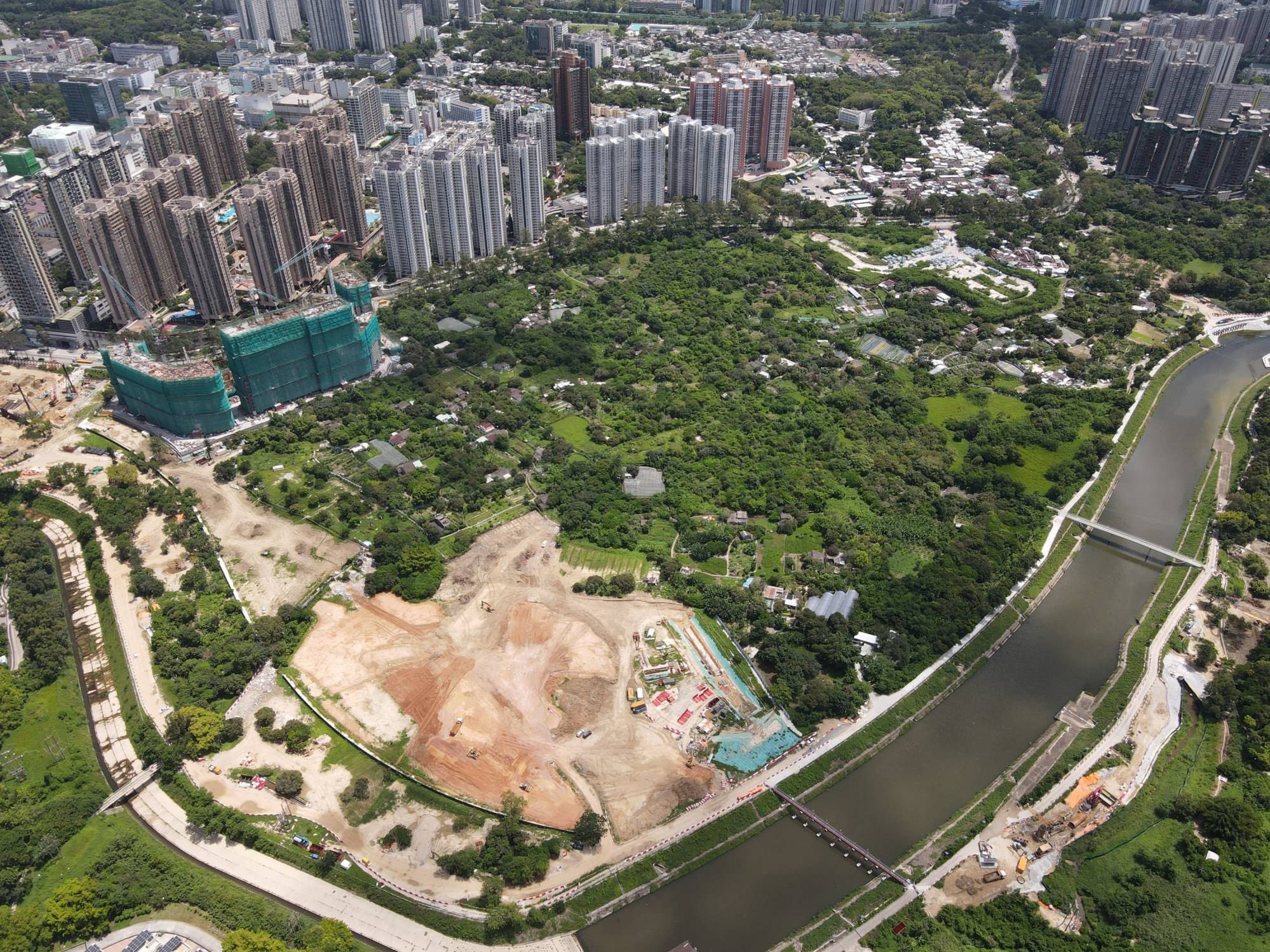The government will help finance the development of the Northern Metropolis mega project along Hong Kong’s border with mainland China by extending a land exchange arrangement in a bid to ease the pressure on the taxpayers, a minister has revealed.
Secretary for Development Bernadette Linn Hon-ho on Monday said authorities would allow the current owners of land earmarked for the new town to keep their plots and build within the limits of zoning uses, but they would be required to pay a premium to authorities. Otherwise, they would be offered compensation, she said.
“If more land owners can participate and act in accordance with the government’s plan, it can alleviate the government’s capital burden as we do not need to pay the compensation, while the owners will conduct site formation works,” Linn said.

For the Northern Metropolis, the administration plans to lay out all development proposals by the end of next year and complete 40 per cent of the planned flats by 2032.
The project is expected to ultimately provide half a million flats for 2.5 million residents and establish a new commercial area along the border with mainland China dedicated to helping Hong Kong become an innovation and technology hub not just for the Greater Bay Area but also the region.
Hong Kong government to set up 2 bodies to seek private funding for mega projects
Hong Kong government to set up 2 bodies to seek private funding for mega projects
The new town will extend across 30,000 hectares in the northern New Territories. The government has already announced it will resume ownership of 700 hectares across the city in the next five years for development, most of it located in the new town area.
The administration has yet to reveal the cost of building the economic and housing hub at the city’s border with mainland China. It is one of two of the biggest projects the government is advancing, with the other being artificial islands off Lantau.
But how to best fund them remains a pressing concern. The finance chief last week said Hong Kong’s budget deficit could be nearly twice that of earlier estimates and exceed HK$100 billion (US$12.8 billion).
Linn said the land exchange arrangement would reduce the overall amount of compensation to be paid to land owners as they could opt to pay a premium to turn farmland into residential, commercial or community developments.
Hong Kong’s Paul Chan defends economic potential of land-reclamation projects
Hong Kong’s Paul Chan defends economic potential of land-reclamation projects
The scheme was launched in 2014 and only applicable to the Kwu Tung North and Fanling North New Development Area. The second round began last year and out of 18 applications received, eight have been rejected or withdrawn, another seven are still under discussion over the land premium, while the others are still being processed.
Linn said the government would still resume the sites in stages if land owners’ response to the land exchange arrangement was lukewarm.
“We expect to take back the sites,” she said. “We will prepare and consider suitable financing options.”
Hong Kong proposes streamlining immigration at Northern Metropolis checkpoint
Hong Kong proposes streamlining immigration at Northern Metropolis checkpoint
She was referring to work to be taken up by the Committee on the Financing of Major Development Projects and its new office.
First mentioned in 2021 by then chief executive Carrie Lam Cheng Yuet-ngor, the Northern Metropolis project has been divided into three areas focused on business, I&T and eco-recreation.
The latest plan redrew the boundary into “four major zones” with a newly added high-end professional services and logistics hub.